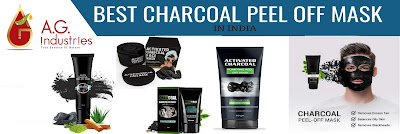DIY Tea Tree Oil: A Dream or an Industrial Nightmare?
It's important to understand that "DIY tea tree oil" for industrial purposes presents some significant challenges and considerations. Here's a breakdown of the key points:
Understanding Tea Tree Oil Production:
- Steam Distillation:
- The standard method for extracting tea tree oil is steam distillation.
This involves passing steam through tea tree leaves, which releases the oil. The steam is then condensed, and the oil is separated from the water. - This process requires specialized equipment, particularly for large-scale production.
- The standard method for extracting tea tree oil is steam distillation.
- Quality Control:
- Industrial applications often demand consistent and high-quality tea tree oil.
This requires precise control over the distillation process and rigorous testing to ensure purity and composition. - Factors such as the quality of the leaves, distillation temperature, and time can all affect the final product.
- Industrial applications often demand consistent and high-quality tea tree oil.
- Scale and Efficiency:
- Industrial use implies large volumes.
DIY methods are generally not efficient or cost-effective for meeting these demands. - Industrial extraction plants are designed for large scale operations.
Challenges of DIY for Industrial Use:
- Equipment:
- Setting up a large-scale distillation operation requires significant investment in specialized equipment.
- Consistency:
- Maintaining consistent quality and composition in DIY production can be very difficult.
- Safety:
- Distillation processes can involve safety hazards, especially at larger scales.
- Regulations:
- Industrial production of essential oils may be subject to regulations and standards.
- Industrial production of essential oils may be subject to regulations and standards.
Industrial Applications of Tea Tree Oil:
- Cosmetics and Personal Care:
- Tea tree oil is widely used in soaps, shampoos, lotions, and other personal care products due to its antimicrobial properties.
- Tea tree oil is widely used in soaps, shampoos, lotions, and other personal care products due to its antimicrobial properties.
- Cleaning Products:
- It is also used in household and industrial cleaning products as a natural disinfectant.
- It is also used in household and industrial cleaning products as a natural disinfectant.
- Pharmaceuticals:
- Tea tree oil has various medicinal applications, including topical treatments for fungal infections and skin conditions.
Recommendations:
- For industrial use, it is generally recommended to source tea tree oil from reputable suppliers who can provide consistent quality and meet regulatory requirements.
- While DIY methods may be suitable for small-scale personal use, they are typically not practical for industrial applications.
In summary, while it's possible to extract tea tree oil at home, supplying industries would require industrial level equipment, and quality control.




Comments
Post a Comment